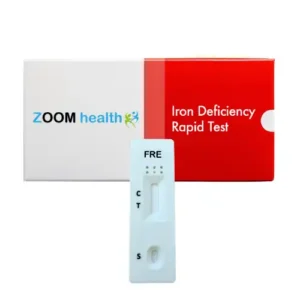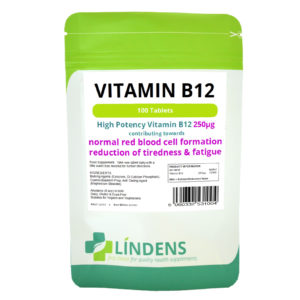Globally, 1.62 billion people are affected by anaemia which is approximately 24.8% of the population. The highest is among preschool children at 47.4% and the lowest is among men at 12.7%. That said, how many people really know what anaemia is or if they are affected by it? And how can you tell if your body Is iron deficient?
What is Anaemia?
Anaemia is caused by a very low red blood cell count. Red blood cells house haemoglobin which gives the blood the colour of red. Haemoglobin carries oxygen throughout the body, if red blood cells and haemoglobin are not sufficient, oxygen can not be sent to the body tissues. With insufficient supplies of oxygen, your heart and lungs are forced to work twice as hard to get oxygen into the blood. When someone becomes anaemic, one of the first signs will be difficulty breathing.
Preschool children and pregnant women are the highest population affected by anaemia. Many of these cases are due to a lack of iron, low vitamin B12 and lack of folic acid.
The Causes Of Anaemia
There various elements that can bring about anaemia and various reasons that can cause the onslaught of this ailment:
- A lack of iron in your diet
- Heavy menstrual periods
- Deficiencies of folic acid and vitamin B12 in Diets.
- Internal bleeding possibly caused by ulcers or tumours.
- Blood diseases such as leukaemia can cause anaemia
- Various infections including malaria
As you can see, there are different types of anaemia mainly brought on by a lack of rich red blood cells due to inadequate levels of folic acid, iron and vitamin B12 or unrelated internal issues. Diets consisting of these important elements is very important in making sure you have the proper amount of oxygen moving throughout your body all the times.
Types Of Anaemia
Iron deficiency anaemia
This is the most common cause of anaemia because the body cannot operate properly without iron. In order to produce haemoglobin, there must be a sufficient amount of iron allowing the haemoglobin to distribute oxygen to the body’s tissues.
Women are very susceptible to lack of iron due to menstrual periods and a lack of iron within their diets. Another common reason is due to a loss of blood making it harder for the body to produce more blood. This is caused by stomach cancer, ulcers, gastritis, piles and bowel cancer.
Good sources of iron are found in fruits, green vegetables, meat, beans, fortified breakfast cereal and wholemeal breads. Generally, there are 10 great sources of iron that we would recommend.
These include foods like spinach, lentils, tofu, quinoa, dark chocolate, pumpkin seeds, beef liver, oysters, fortified oatmeal, and white beans. It’s important to note that while it’s best to obtain iron from a balanced diet with whole foods, some people may need to take iron supplements. However, it’s crucial to speak to a healthcare professional before taking supplements as high levels of iron can be harmful to the body.
In addition to incorporating iron-rich foods into your diet, there are other lifestyle changes you can make to help increase your iron levels. For example, vitamin C can boost the absorption of iron, so try pairing iron-rich foods with fruits like oranges, strawberries, and kiwi.
It’s important to address iron deficiency as soon as possible, as the symptoms can be debilitating and negatively impact daily life. These symptoms may include fatigue, weakness, shortness of breath, headaches, and pale skin. By incorporating a variety of iron-rich foods into your diet and making lifestyle changes, you can help prevent and treat iron deficiency anaemia.
Vitamin B12 deficiency anaemia
This type of anaemia is known as Pernicious Anaemia and occurs when there is an inadequate amount of vitamin B12 being absorbed into the body. In order to have a healthy nervous system, an adequate level of vitamin B12 is critical. In order to have a healthy nervous system, an adequate level of vitamin B12 is critical. If there is an insufficient level of vitamin B12, you could also develop inflammation within the nerves and/or dementia.
Twitching may also be a sign of anaemia. A study published in Neurology International published in August 2014, suggested that different vitamin deficiencies, including vitamin B12 deficiency, may cause muscle twitching. Another sign of anaemia, as a result of a lack of B12 is a burning sensation in the mouth, a mouth ulcer or a swollen tongue. These symptoms happen because vitamin B12 deficiency causes a reduction in red blood cell production, which can result in less oxygen reaching the tongue.
Good food sources for vitamin B12 include meat, dairy products and liver.
For people who follow a vegan or vegetarian diet, it can be challenging to obtain adequate amounts of vitamin B12 from food sources alone, as this vitamin is predominantly found in animal-based products. In such cases, supplementation or fortified foods may be necessary to ensure adequate vitamin B12 intake.
It is essential to diagnose and treat anaemia promptly to prevent its potential complications. If left untreated, a severe vitamin B12 deficiency can lead to irreversible nerve damage and neurodegenerative diseases. A blood test can determine the type and severity of anaemia, and a physician can prescribe the appropriate treatment based on the underlying cause.
Folic Acid deficiency
This type of anaemia is known as Megaloblastic Anaemia and occurs due to a diet low in folic acid and vitamin B12. It can also be triggered with over-consumption alcohol, causing a decline in folic acid.
Good food sources for folic acid include raw green vegetables, fresh fruit, whole grain cereals and beans.
In order to diagnose anaemia, there are symptoms your doctor will test for:
The most common symptom is constant, chronic tiredness and palpitations. Other symptoms consist of:
- Fainting
- Shortness of breath
- Dizziness
- A Pale pallor
- Angina
A sore, red tongue and loss of taste is usually found in patients that are lacking folic acid and vitamin B12.
How Is Anaemia Diagnosed?
The most common test is through a full blood count in which the test sees the number, size and shape of your red blood cells. Your doctor can also measure your iron, vitamin B12 and folic acid levels. If your doctor diagnoses anaemia but cannot find an obvious cause, he or she might request an x-ray to make sure there is no internal bleeding going on.
Treating Anaemia
The treatment depends on the type of anaemia but in many cases this can be easily remedied with a change in your diet and/or taking supplements rich in iron, folic acid and vitamin B12. If the type of anaemia is due to vitamin B12, a doctor might set up vitamin B12 injections. These injections are administered every three months and could take place the rest of the patient’s life. There are also iron injections but are usually not necessary and would not be over a prolonged period of time.
If you are suffering from internal bleeding caused by ulcers, e.g., medications and/or surgery further actions will probably be required. If the patient is suffering from severe anaemia, a blood transfer may be in order.
How To Avoid Anaemia
You should start eating a healthy diet rich in iron, folic acid and vitamin B12. There are many excellent food sources that incorporated into your diet will keep your blood cells rich and healthy. As vitamin B12 is found mostly in meant, if you are a vegetarian, take a vitamin B12 supplement instead.
If you consume a great deal of alcohol, you should cut back.
Untreated Anaemia
If you suffer from anaemia and it is left untreated, your symptoms will become worse. You may become extremely tired and weak, you could develop angina or suffer from serious leg pain when you are walking.
Your body’s ability to fight off infections will also suffer if anaemia is untreated. As your body will not be able to properly fight off infections, you will probably pick up infections very easily.
In Conclusion
If you are feeling extremely tired or believe you are experiencing any of the symptoms listed, talk to your doctor and find out what’s going on. If you know you are not eating healthy foods, it’s time to incorporate these foods into your diet and keep them there. Anaemia can be treated very quickly but if gone untreated, you might be leaving yourself wide open to other diseases and issues.
Photo Credit: Anthony Cunningham for Zoom Health
Zoom Health is a leading UK supplier of Home Health Tests and Earplugs
This post was originally published in August 2015. It was last updated in January 2025.







